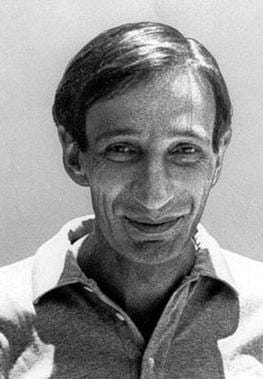
Ivan Illich died in 2002 and is now in danger of being forgotten. His famous book, Medical Nemesis,1 appeared in 1975 and captured the imagination and approbation of many. He was a vehement critic of the “medical establishment,” which he regarded as a threat to people’s health. He was not the first to express such feelings, and one only has to go back to Molière, who wrote in the times of Louis XIV and made great fun of the pretensions of what considered itself a learned profession.
Ivan Illich criticized the ”medicalization” of people’s lives and argued they had done well enough before doctors intruded into their lives. He himself was born in 1926 in a religiously diverse family that left illiberal Vienna in 1941, giving him an opportunity to study in the magnificent city of Florence. Later he studied theology and philosophy at the Vatican and medieval history in Salzburg. In 1951 he moved to America and became a priest. Involved in various missionary activities, he even traveled throughout South America on foot and by bus, but then turned against the missionary establishment and was summoned to Rome in 1968 to answer charges of heresy.2
Not being burned at the stake, he switched to attacking the corruption of Western institutions. In time he became increasingly popular with various leftist intellectual movements. In his 1971 book Deschooling Society3 he criticized the educational system, which in his view stifled learning—but he held professorships at various universities. He did not like modern mass transportation—but zigzagged the Atlantic Ocean by jet. He enjoyed expensive food and fine wines. He is mostly remembered for his harsh criticism of doctors and of the medical establishment at large.
He elaborated his critique in Medical Nemesis.1 He thought doctors caused more damage than they brought benefits, obscuring the real causes that make people sick and taking away the individual’s power to heal himself. He saw the doctor as the patient’s accomplice in creating the myth that he is an innocent victim of hostile circumstances rather than a lazy, greedy, or envious participant in a struggle over resources and a recipient of excessive medical care.1
In his diatribe he essentially criticized society as a whole, claiming that patients were at fault for refusing to recognize reality, leaving the doctor as a mere accomplice, a greedy one sometimes, but still merely an accomplice. From the perspective of his philosopher’s chair, he saw the patients, even when ill and in pain, as not stoic enough to exhibit “patience, forbearance, courage, resignation, self-control, perseverance, and meekness.”1
Illich attributed our longer life span to the conquest of the infectious disease epidemics and the discovery of antibiotics, for which he gave the medical profession no credit. He regarded medical effectiveness as an illusion, questioned its failure to cure many cancers, and blamed human failings for the resurgence of venereal diseases and malaria. He posited that society was suffering much from doctor inflicted injuries, some of which he describes as murderous torts such as medical malpractice and, especially, drugs—people taking the wrong drug, contaminated or counterfeited drugs, addictive or mutagenic drugs, drugs given in improperly sterilized syringes, or antibiotics causing deadly resistance in organisms. Add to this unnecessary surgery, doctor inflicted pain, professional callousness, negligence, sheer incompetence, and accidents sustained during hospitalization.1
Illich also claimed that the doctor, while acting as patients’ accomplices, also left them defenseless by “reinforcing a morbid society that encourages people to become consumers of curative preventive industrialized and environmental medicine.”1 Medicine, in his opinion, undermines health by increasing stress, multiplying disability dependence, generating new needs, and lowering the levels of tolerance for discomfort and pain, even abolishing the right to self-care.1
Without question, Illich was a great thinker. He was a polymath whose output spanned many different terrains and whose pronouncements bring to mind Friedrich Nietzsche. But he went too far in his criticisms and oracular pronouncements. He was too hard on the medical profession. He tarred all doctors with the same brush as “accomplices” to patients who gamed the system or lacked fortitude. Like Seneca and other philosophers, he did not always practice what he preached. And if he were to come to today, he would find medical care even more commercialized, patients feeling even more entitled, and advertisements on television crasser.
He would find, however, at least in America, that the actors have changed. The doctors no longer hold the monopoly, though they may still be “accomplices.” They have become mostly employees with little say. The establishment now consists of large corporations and their executive chiefs, drug and device manufacturers, insurance companies, and an ever-expanding regulatory bureaucracy. For the more things change, the more they remain the same—but sometimes, he might have felt, they even get worse.
Further reading
- Illich, Ivan Medical Nemesis. (1975).
- O’Mahony S. Medical Nemesis 40 Years on: the enduring legacy of Ivan Illich. J.R.Coll Physicians Edinb 2016:46:134
- Illich, Iván. Deschooling Society. (1971)
